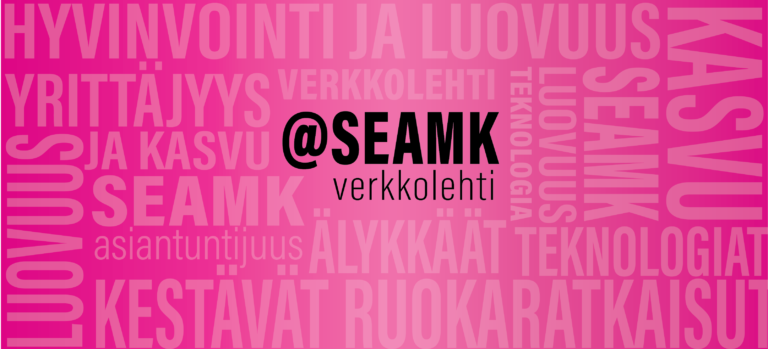Digital health literacy: Expanding beyond online health information perspectives

Digitalisation demands that citizens take a more proactive role in managing their health and wellbeing (Ministry of Social Affairs and Health, 2024). Technological solutions such as digital social and healthcare services, chat and video consultations, mobile applications, self-assessment tools, and various wellbeing technologies like smartwatches and smart rings offer new opportunities for self-care and service use. However, taking advantage of these opportunities requires sufficient knowledge and skills, often referred to as digital health literacy.
Digital health literacy (eHealth literacy) has traditionally been defined as the ability to “to seek, find, understand, and appraise health information from electronic sources and apply the knowledge gained to addressing or solving a health problem” (Norman & Skinner, 2006). Building on this definition, subsequent research has largely focused on individuals’ abilities to find, evaluate, understand, and use health information obtained from digital sources (Ban et al. 2024).
In recent years, however, research has expanded, and the original approach has been deemed too narrow to encompass all the essential knowledge and skills citizens need to promote health and wellbeing through technology (e.g., Kaihlanen et al., 2023; Kayser et al., 2018; Le et al., 2024; Liu et al., 2021; Van Der Vaart & Drossaert, 2017). Even the original definers of the concept, Norman and Skinner (2006), have acknowledged that digital health literacy is not static but a process-oriented skill that evolves with technological and societal changes. Today, rapid technological development such as the rise of digital services, remote care, wearable technology, and artificial intelligence challenges us to update our understanding of what digital health literacy truly means.
New research from SEAMK: A broad range of competencies is needed
Our article published in the SAGE Digital Health journal, titled “Key Digital Health Literacy Competencies – A Delphi Study” (Uitto et al., 2025), examined digital health literacy and aimed to identify the most important knowledge and skills citizens will need over the next three years to promote health and wellbeing through digital technology. In autumn 2024, we conducted a three-round Delphi study involving 29 experts in digital healthcare and health promotion from Finland. The study employed both qualitative and quantitative methods. The research phases were as follows:
- Round 1: Experts listed the knowledge and skills they believe citizens will need in the next three years to promote their own or others’ health and wellbeing using digital technology.
- Round 2: Participants rated the importance of these competencies on a scale from 1 to 7.
- Round 3: Experts selected the ten most important competencies and ranked them in order of importance.
The results showed that citizens need a diverse set of skills. The most critical competencies identified were using electronic identification and general IT proficiency. Other key competencies included:
- Finding and using digital health services
- Searching for, evaluating, and applying health information from digital sources
- Managing and utilizing one’s electronic health records
- Skills related to data protection and cybersecurity
A new definition
Research on digital health literacy should move toward a broader understanding of competencies that better reflect current demands. While knowledge and skills in in finding, evaluating and applying online health information remain essential, new and emerging technologies and their development trends must also be considered. The following new and broader definition of digital health literacy, used in our study (Uitto et al., 2025), aims to meet this need:
Digital health literacy = A set of knowledge and skills that enable citizens to promote and maintain good health and wellbeing through digital technology.
Read the full original article here: Key digital health literacy competencies for citizens – A Delphi study – PubMed
This article was prepared as part of the project dHL 4.0. We would like to thank our funder (Töysän Säästöpankkisäätiö) for this project and article.
Mika Uitto
Project Manager
SeAMK
mika.uitto(a)seamk.fi
Merja Hoffrén-Mikkola
Principal Lecturer
SeAMK
merja.hoffren-mikkola(a)seamk.fi
References
Ban, S., Kim, Y., & Seomun, G. (2024). Digital health literacy: A concept analysis. Digital Health, 10, 20552076241287894. https://doi.org/10.1177/20552076241287894
Kaihlanen, A.-M., Virtanen, L., Kainiemi, E., & Heponiemi, T. (2023). Professionals Evaluating Clients’ Suitability for Digital Health and Social Care: Scoping Review of Assessment Instruments. Journal of Medical Internet Research, 25, e51450. https://doi.org/10.2196/51450
Kayser, L., Karnoe, A., Furstrand, D., Batterham, R., Christensen, K. B., Elsworth, G., & Osborne, R. H. (2018). A Multidimensional Tool Based on the eHealth Literacy Framework: Development and Initial Validity Testing of the eHealth Literacy Questionnaire (eHLQ). Journal of Medical Internet Research, 20(2), e8371. https://doi.org/10.2196/jmir.8371
Le, C., Guttersrud, Ø., Levin-Zamir, D., Griebler, R., & Finbråten, H. S. (2024). Associations between digital health literacy and health system navigating abilities among Norwegian adolescents: Validating the HLS19-DIGI scale using Rasch modeling. BMC Public Health, 24(1), 2043. https://doi.org/10.1186/s12889-024-19405-w
Liu, H. X., Chow, B. C., Liang, W., Hassel, H., & Huang, Y. W. (2021). Measuring a broad spectrum of eHealth skills in the Web 3.0 context using an eHealth literacy scale: Development and validation study. Journal of Medical Internet Research, 23(9), e31627. https://doi.org/10.2196/31627
Ministry of Social Affairs and Health. (2024, January). Strategy for digitalisation and information management in healthcare and social welfare. https://julkaisut.valtioneuvosto.fi/handle/10024/165362